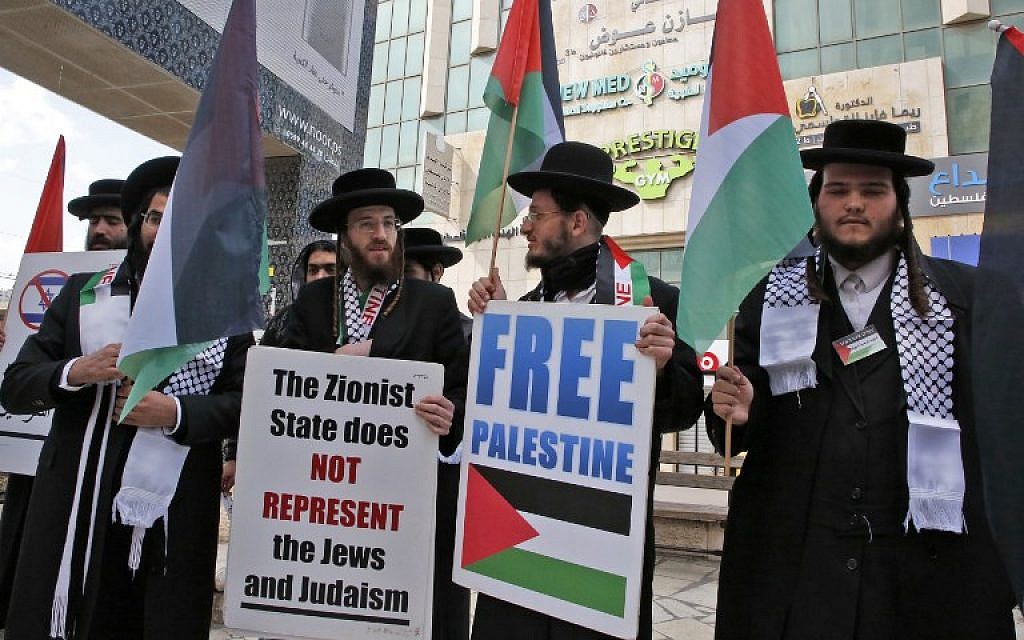Zionism Is to Blame for the Palestinian Condition: Israeli-American Activist

Anti-Semitism and anti-Zionism are not equivalent, said Israeli-American author and activist Miko Peled in a virtual session held on Oct. 18.
The webinar, titled “Anti-Semitism vs. Anti-Zionism,” was co-hosted by the Students for Justice in Palestine chapters of Georgetown University and Georgetown University in Qatar. The event was moderated by Uday Rosario, the assistant director for student programs at GU-Q.
Peled started by defining both anti-Semitism and anti-Zionism: “Anti-Semitism is a form of racism as it targets Jewish people because they are Jewish. Anti-Zionism is a struggle against a racist political ideology that says ‘I, and millions of other Jewish people like me, have a right to go and live in Palestine at the expense of Palestinians.’”
Peled went on to explain what Zionism is and how Israel bases its state on the ideology.
“Zionism is a political ideology, or a political movement, and an actual regime which exists today. The State of Israel is a result of the Zionist ideology, despite Judaism completely opposing its creation,” he said. “The reason we have millions of Palestinian refugees living in poverty and horrifying conditions in refugee camps is because of Zionism. The only reason they cannot return to their homeland is because the State of Israel has banned them from returning because they are not Jewish.”
Peled, born and raised in a Zionist family, has written books documenting his transformation from a Zionist into an anti-Zionist, including “The General’s Son: Journey of an Israeli in Palestine” and “Injustice: The Story of the Holy Land Foundation Five.”
“I was raised in the most Zionist environment one could possibly have,” he said. “I know Zionism from within. Its expression is violence. I believe, taking the journey as an Israeli and having stepped from a colonizer into the sphere of the colonized, I cannot in all consciousness but reject Zionism and reject the State of Israel.”
Peled said Zionism is “yet another form of severe racism” that threatens the well-being and fundamental rights of Palestinians in the crisis zone. Fighting racism is not as simple as it sounds, he added. Taking examples from the South African struggle against the apartheid regime and the recent Black Lives Matter protests in the United States, Peled explained how Zionism resembles other racist cultures.
“If we look at the crime of ethnic cleansing, apartheid, and genocide as stated by international laws, and we compare that to what has been happening in Palestine since the establishment of the State of Israel, then we see these crimes fitting the bill,” said Peled. “When you stand against a racist political system, they’re going to fight back. We know very well that people who stood against the apartheid in South Africa had to pay a price.”
Peled also highlighted the impact of Zionist ideology on Arab citizens of Israel. “Israel continues to violently dispossess Palestinians on a regular basis in the Negev desert, the entire southern half of Palestinian residence,” he said. “In the Negev only, Israel had demolished more than 2,000 homes each year, although the people of Negev are Israeli citizens. So the campaign of ethnic cleansing and deepening of the apartheid regime continues to strengthen to this very moment.”
Throughout his talk, Peled emphasized being able to distinguish between anti-Semitism and anti-Zionism and said these terms are deliberately made confusing by Zionist advocates.
“Today, one of the tools that is being used by the other [Zionist] side is to say that people who oppose their racist ideology are anti-Semitic because Zionists happen to be Jews and Israel calls itself a Jewish state,” he said. “Well, they can call themselves whatever they want, opposing them is not racism. Just because they’re Jewish, doesn’t mean they are exempt from this conversation.”
Participants were allowed to ask questions directly to Peled in the second half of the webinar. Answering a question about activist efforts, Peled said pro-Palestine supporters must keep the Boycott, Divestment, Sanctions (BDS) movement alive for the sake of Palestinian refugees.
“The Boycott, Divestment, Sanctions (BDS) movement has three simple demands: the return of refugees, ending the military rule or Israeli occupation, and equal rights. All of these have been recognized by international law,” Peled answered.
Peled took the occasion to thank the Students for Justice in Palestine initiative for organizing the webinar and encouraged the students to continue taking initiatives on humanitarian issues.
“When justice comes to Palestine, as I believe it will, you are going to be able to look at yourself in the mirror and say, ‘I had a pivotal role in bringing justice to Palestine.’”
At the end of the event, he urged Palestine supporters to remain hopeful.
“I know Palestinian friends whose future is uncertain, don’t have an access to basic components and are still fighting to get through this,” Peled said. “People like me and many of those who are attending, we don’t have that luxury to be hopeless. We must define hope, show what hope looks like, and put every ounce of energy to make it real.”












